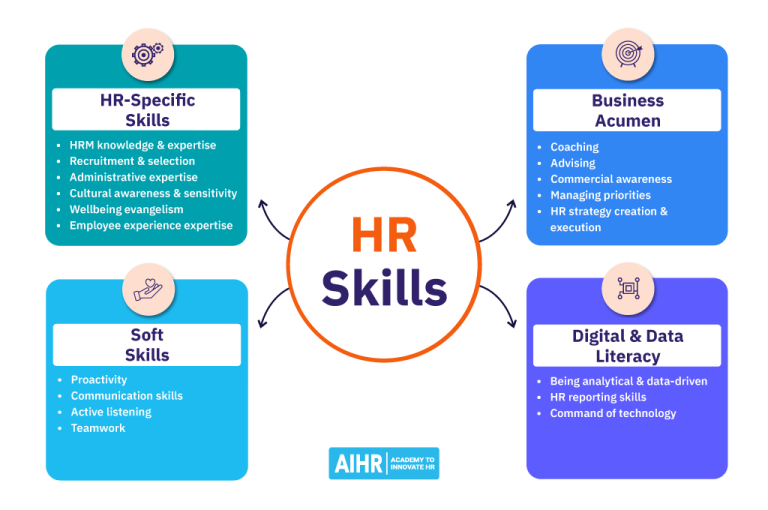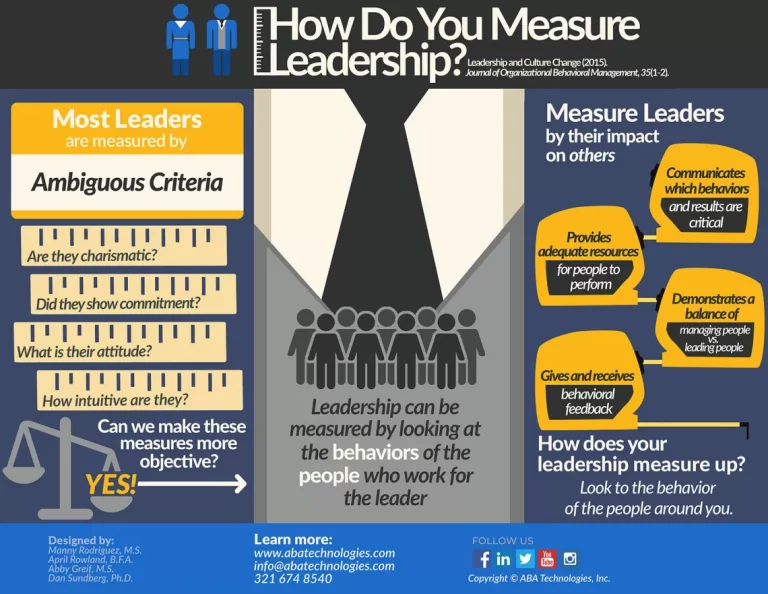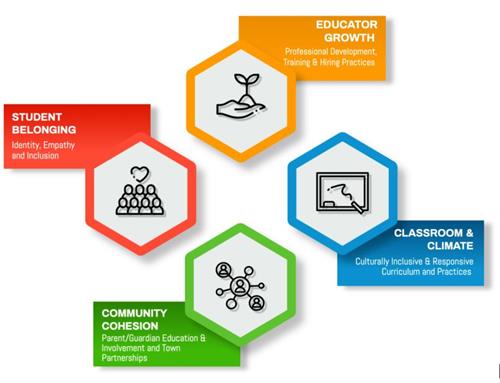How Do You Develop Your Leadership Skills at Work?
To develop your leadership skills at work, seek out opportunities for direct mentorship and take on challenging projects that push you out of your comfort zone. Developing leadership skills in the workplace is crucial for career growth and professional success.
It not only allows individuals to effectively guide and motivate their teams but also enhances their ability to make strategic decisions and solve complex problems. By developing strong leadership skills, individuals can become valuable assets to their organization and open doors to new opportunities.
The good news is that leadership skills can be cultivated and refined over time with the right mindset and approach. We will explore some effective strategies to enhance your leadership skills at work. So let’s dive in and discover the key steps you can take to become a more confident and effective leader in your professional life.

Credit: www.fieldengineer.com
1. Setting Clear Goals
Developing leadership skills at work involves setting clear goals. By defining your objectives and communicating them effectively, you can inspire and guide your team towards success. This fosters a productive work environment and enhances your leadership capabilities.
Setting clear goals is an essential aspect of developing your leadership skills at work. It provides you with direction and helps you prioritize your tasks effectively. Here are two crucial steps to follow when setting clear goals:1.1 Aligning personal goals with company objectives
To become an effective leader, it is vital to align your personal goals with the objectives of your company. When your personal goals are in line with the organization’s goals, your motivation will naturally increase, resulting in focused and productive work. This alignment also ensures that your efforts are contributing directly to the growth and success of the company. To achieve this alignment, start by understanding the overarching objectives of the organization. Identify how your personal goals can complement and support these objectives. This could involve enhancing specific skills, pursuing professional development opportunities, or taking on additional responsibilities that directly contribute to the company’s success.1.2 Breaking down goals into smaller tasks
Breaking down goals into smaller tasks is a crucial step in setting clear goals. This process enables you to manage complex goals effectively and enhances your ability to track progress. By breaking down goals, you can create a roadmap that outlines the smaller steps required to achieve the larger objective. To do this successfully, identify the key milestones or checkpoints along the way. Then, divide the overall goal into smaller, manageable tasks that can be completed within specific time frames. Assign priorities to each task and ensure that they are realistic and achievable. Breaking down goals also allows you to delegate tasks effectively, ensuring that everyone on your team knows their individual responsibilities.HTML Syntax:
Setting clear goals is an essential aspect of developing your leadership skills at work. It provides you with direction and helps you prioritize your tasks effectively. Here are two crucial steps to follow when setting clear goals:
1.1 Aligning personal goals with company objectives
To become an effective leader, it is vital to align your personal goals with the objectives of your company. When your personal goals are in line with the organization’s goals, your motivation will naturally increase, resulting in focused and productive work. This alignment also ensures that your efforts are contributing directly to the growth and success of the company.
To achieve this alignment, start by understanding the overarching objectives of the organization. Identify how your personal goals can complement and support these objectives. This could involve enhancing specific skills, pursuing professional development opportunities, or taking on additional responsibilities that directly contribute to the company’s success.
1.2 Breaking down goals into smaller tasks
Breaking down goals into smaller tasks is a crucial step in setting clear goals. This process enables you to manage complex goals effectively and enhances your ability to track progress. By breaking down goals, you can create a roadmap that outlines the smaller steps required to achieve the larger objective.
To do this successfully, identify the key milestones or checkpoints along the way. Then, divide the overall goal into smaller, manageable tasks that can be completed within specific time frames. Assign priorities to each task and ensure that they are realistic and achievable. Breaking down goals also allows you to delegate tasks effectively, ensuring that everyone on your team knows their individual responsibilities.
“` Note: Please copy the HTML output and use it in a WordPress HTML editor.
Credit: www.thriveyard.com
2. Building Effective Communication
Developing effective communication skills is essential for leaders to successfully navigate the workplace environment. Strong communication skills foster understanding, build trust, and enhance collaboration among team members. In this section, we will explore two key aspects of communication that contribute to leadership development: active listening skills and providing constructive feedback.
2.1 Active Listening Skills
Active listening is a crucial skill that leaders must develop to effectively communicate with their team members. It involves fully focusing on and comprehending what the speaker is saying, rather than simply waiting for an opportunity to respond. By engaging in active listening, leaders demonstrate their respect and empathy towards others, creating an environment where ideas can be freely expressed.
Here are a few strategies to enhance active listening:
- Give your full attention to the speaker, maintaining eye contact and avoiding distractions.
- Practice empathy by putting yourself in the speaker’s shoes and trying to understand their perspective.
- Ask clarifying questions to ensure you have understood the message correctly.
- Refrain from interrupting or interjecting with your opinions before the speaker has finished.
2.2 Providing Constructive Feedback
Constructive feedback is a valuable tool that leaders can use to empower their team members and drive personal and professional growth. By providing feedback in a constructive manner, leaders can address performance gaps, encourage development, and motivate individuals to reach their full potential.
Consider these tips when providing constructive feedback:
- Be specific and focus on the behavior or action that needs improvement.
- Offer feedback in a timely manner, allowing individuals to reflect on their actions while the situation is fresh in their minds.
- Use a positive and supportive tone, emphasizing the strengths and potential for improvement.
- Suggest actionable solutions or alternatives that individuals can implement to enhance their performance.
Remember, effective communication involves not only expressing your thoughts clearly but also actively listening to others and providing valuable feedback. Developing these skills will help you become a more influential and respected leader in your workplace.
3. Developing Emotional Intelligence
Emotional intelligence, also known as EQ, plays a vital role in effective leadership. It enables you to recognize and manage your own emotions while understanding the emotions of others. By developing your emotional intelligence, you can navigate workplace relationships with empathy, build trust, and inspire your team to achieve their best. Here are two key aspects of developing emotional intelligence:
3.1 Recognizing And Managing Emotions
Effective leaders have the ability to recognize and manage their own emotions. By understanding your own emotional triggers, you can regulate your reactions and respond thoughtfully in various situations. Here’s how you can recognize and manage emotions:
- Be self-aware: Take the time to reflect on your emotions and the underlying reasons behind them. This awareness will help you recognize patterns and manage your emotions more effectively.
- Practice self-control: When faced with challenging situations, take a moment to pause and breathe before responding. Consider the potential impact of your words and actions, and choose a calm and composed approach.
- Develop resilience: Learn to bounce back from setbacks and overcome obstacles. Resilience allows you to persevere in the face of adversity and maintain a positive attitude.
- Seek feedback: Ask for feedback from trusted colleagues or mentors to gain insights into how your emotions and reactions may be perceived by others. This feedback can help you identify areas for improvement.
3.2 Empathy And Understanding
Empathy is a crucial skill for leaders to develop, as it enables you to understand and relate to the experiences and emotions of others. By showing empathy, you can establish deeper connections with your team, foster a positive work environment, and resolve conflicts more effectively. Here’s how you can practice empathy and understanding:
- Listen actively: Pay attention to what others are saying and try to understand their perspectives without interrupting or judging. Show genuine interest and ask clarifying questions to demonstrate your commitment to understanding.
- Show compassion: Demonstrate kindness and compassion towards others, especially during difficult times. Offer support, encouragement, and assistance when needed.
- Practice perspective-taking: Put yourself in others’ shoes to gain a better understanding of their emotions and motivations. Consider their background, challenges, and aspirations to foster empathy and understanding.
- Cultivate inclusivity: Create an inclusive work environment where all team members feel valued and heard. Celebrate diversity and encourage different perspectives to foster innovation and collaboration.
Developing emotional intelligence takes time and self-reflection, but it is a valuable skill that can greatly enhance your leadership abilities. By recognizing and managing emotions while showing empathy and understanding, you can become a more effective and respected leader in the workplace.
4. Cultivating A Growth Mindset
Developing strong leadership skills at work involves cultivating a growth mindset, a key aspect of personal and professional growth. Embracing challenges, seeking feedback, and constantly learning are essential to develop the confidence and adaptability needed for effective leadership.
A growth mindset is the belief that abilities and intelligence can be developed through dedication, hard work, and a willingness to learn. When it comes to leadership, cultivating a growth mindset can significantly strengthen your skills and effectiveness.
4.1 Embracing Challenges And Learning From Failures
Embracing challenges is a crucial aspect of developing your leadership skills. By stepping out of your comfort zone and taking on new and difficult tasks, you can expand your capabilities and gain valuable experience. Challenges can provide opportunities to learn and grow, which is essential for any leader.
Failure is inevitable in any professional journey, but it is how you respond to failures that truly shapes your growth as a leader. Learning from failures is a key component of cultivating a growth mindset. Instead of viewing failure as a setback, see it as a chance to learn, adapt, and improve. Reflect on what went wrong, analyze the lessons learned, and apply them to future endeavors.
4.2 Seeking Continuous Improvement
Leadership is an ongoing journey, and successful leaders never stop seeking ways to improve themselves and their skills. By adopting a mindset of continuous improvement, you can ensure that you are always striving to reach your full potential.
Continuous improvement involves actively seeking feedback from your team and colleagues, as well as regularly evaluating your own performance. Take the time to reflect on your strengths and weaknesses, and identify areas where you can enhance your leadership abilities.
In addition, make a conscious effort to stay updated on the latest industry trends and developments. Attend conferences, workshops, or webinars, and read relevant books or articles. Actively seeking new knowledge and skills will not only benefit you as a leader but also inspire those around you.
5. Collaboration And Teamwork
Collaboration and teamwork are crucial aspects of developing strong leadership skills in the workplace. Working effectively with others not only improves productivity but also enhances job satisfaction and fosters a positive work environment. In this section, we will explore two key factors that contribute to successful collaboration and teamwork: building trust and fostering a positive team culture, and encouraging diverse perspectives.
5.1 Building Trust And Fostering A Positive Team Culture
To promote collaboration and teamwork, leaders need to establish trust among team members and cultivate a positive team culture. Trust is the foundation of a successful working relationship, as it allows individuals to rely on and support one another. Here are some strategies to build trust and create a positive team culture:
- Create an open and inclusive environment where everyone feels valued and respected.
- Encourage transparent communication, both within the team and with other departments.
- Provide constructive feedback in a supportive manner, focusing on growth and improvement.
- Recognize and appreciate individual and collective achievements to boost morale and motivation.
- Promote a sense of belonging by addressing conflicts promptly and finding fair resolutions.
Building trust and fostering a positive team culture create a strong foundation for collaboration, enabling team members to work together towards a common goal while fostering a harmonious and productive work environment.
5.2 Encouraging Diverse Perspectives
Encouraging diverse perspectives within a team enhances problem-solving abilities and encourages innovation. When individuals from different backgrounds, experiences, and expertise come together, they bring fresh ideas and unique insights. Here are some ways to encourage diverse perspectives:
- Establish an inclusive environment where individuals feel comfortable expressing their opinions.
- Encourage active participation from all team members during discussions and decision-making processes.
- Invite and embrace different viewpoints, even if they challenge existing beliefs or approaches.
- Promote diversity and inclusion by actively seeking out diverse talents during the hiring process.
- Provide opportunities for cross-functional collaboration to promote knowledge sharing and broaden perspectives.
By valuing and embracing diverse perspectives, leaders can foster a culture of innovation and creativity within the team, leading to improved problem-solving and better outcomes.

Credit: www.linkedin.com
Frequently Asked Questions On How Do You Develop Your Leadership Skills At Work?
How Can I Develop My Leadership Skills At Work?
To develop your leadership skills at work, you can start by seeking opportunities for leadership roles, volunteering for projects, and taking on additional responsibilities. Additionally, you can seek feedback from your colleagues and mentors, attend leadership training programs, and read books on leadership to enhance your knowledge.
What Are Some Effective Strategies For Developing Leadership Skills At Work?
Some effective strategies for developing leadership skills at work include practicing effective communication, actively listening to your team members, setting clear goals and expectations, collaborating with others, and leading by example. Additionally, fostering a positive work environment, providing constructive feedback, and continuously seeking self-improvement can contribute to your growth as a leader.
Why Is Developing Leadership Skills Important For Career Growth?
Developing leadership skills is crucial for career growth as it allows you to take on leadership roles, manage teams effectively, and inspire others to achieve common goals. Strong leadership skills also enhance your decision-making abilities, problem-solving capabilities, and enable you to adapt to changing work environments successfully.
Additionally, employers often value leaders who can motivate and empower their teams, which can lead to new opportunities and advancements in your career.
Conclusion
To conclude, developing your leadership skills at work is crucial for career growth and success. By embracing opportunities to lead, seeking feedback, and continuously learning, you can become an effective and influential leader. Remember to communicate effectively, foster a positive work environment, and lead by example.
Developing your leadership skills not only benefits you as an individual, but also contributes to the overall success of your team and organization. So, start taking steps today to enhance your leadership abilities and watch your career soar.




